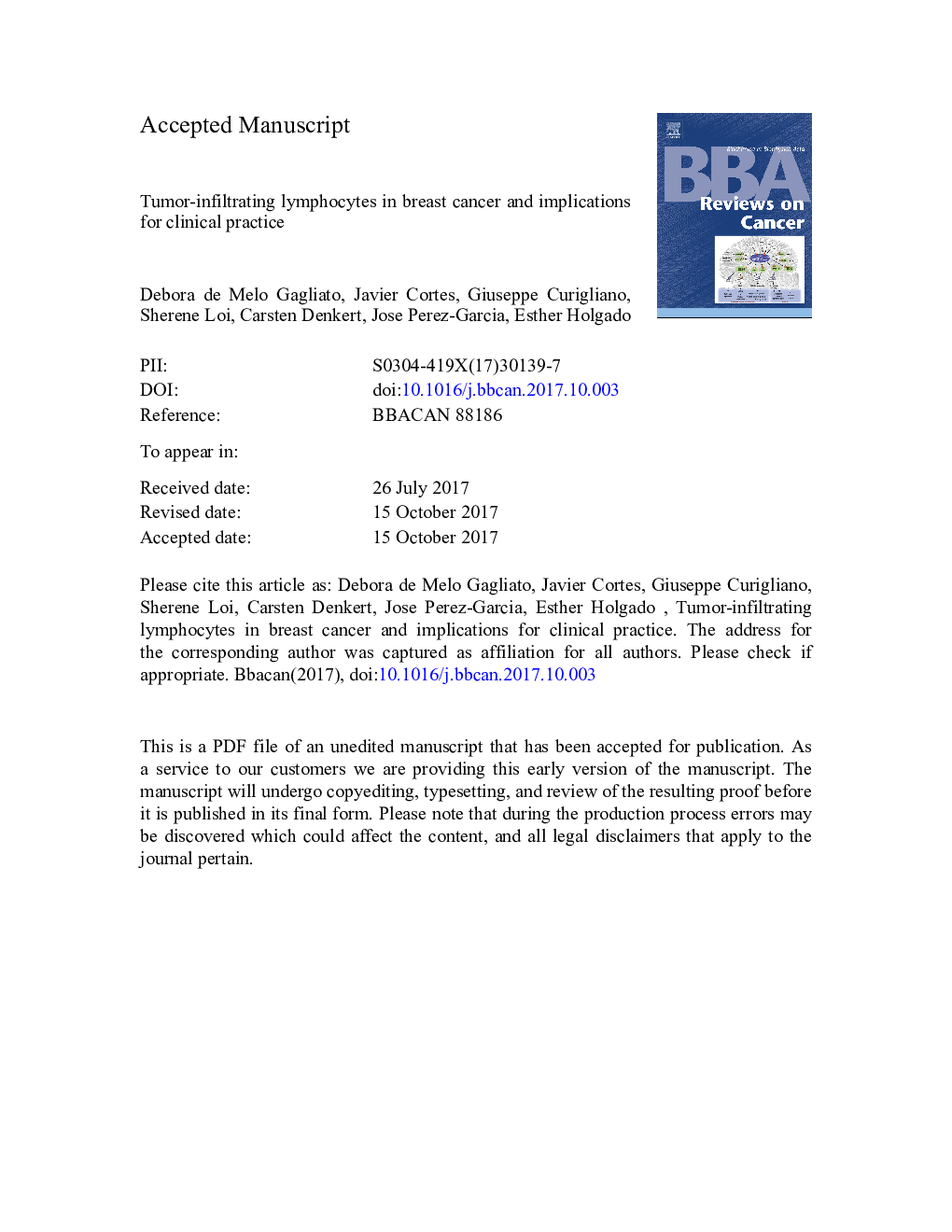| Article ID | Journal | Published Year | Pages | File Type |
|---|---|---|---|---|
| 8429392 | Biochimica et Biophysica Acta (BBA) - Reviews on Cancer | 2017 | 37 Pages |
Abstract
Breast Cancer (BC) can be classified using pathologic features, such as grade and tumor size. It can be categorized based on the gene expression profile, which identifies the distinct molecular subtype. More recently, stromal tissue has been recognized as an important modulator of tumor cell growth, pathogenesis, and progression. Immune cells could drive important clinical characteristics that affect BC outcomes. Subgroups of patients who have tumor-infiltrating lymphocytes in the stroma may have better response to chemotherapy and favorable long-term prognosis. Accumulating evidence shows that the immune system plays a crucial role in the outcomes of some BC subgroups, especially more aggressive, proliferative ones such as triple-negative and HER2-positive BC. This review article will present data on the role of lymphocyte infiltration in BC prognosis and response to therapy. This review will also introduce the reader to the challenges of applying this promising prognostic and predictive biomarker in clinical practice.
Related Topics
Life Sciences
Biochemistry, Genetics and Molecular Biology
Cancer Research
Authors
Debora de Melo Gagliato, Javier Cortes, Giuseppe Curigliano, Sherene Loi, Carsten Denkert, Jose Perez-Garcia, Esther Holgado,
